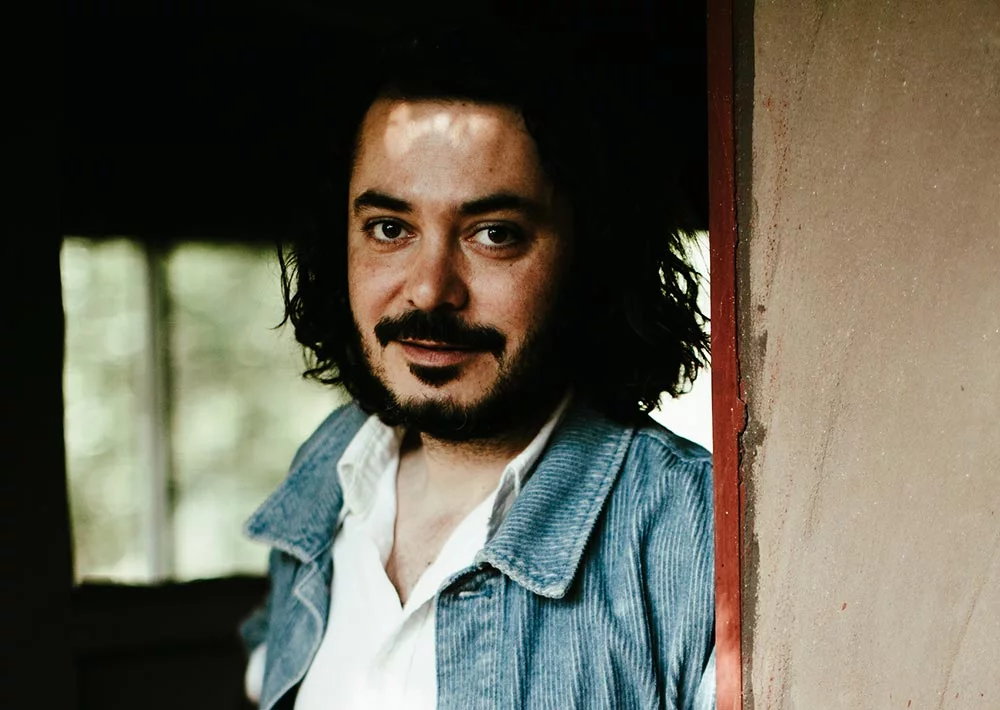
Max Gomez: “I wind up riding this emotional train to wherever I am in the moment.” Photo: Blue Gabor
The Taos, New Mexico, singer-songwriter gears up for a highly anticipated album, sharing insights into his career and musical journey
Max Gomez is approaching a long-awaited new music release. The Taos, New Mexico, native has won audiences over through his previous recordings, 2013’s Rule The World and his 2017 EP Me & Joe, in addition to covers of timeless standards like Key To The Highway and He Was A Friend Of Mine. With evocative folk-influenced tracks such as Make It Me, Run From You, and What It Means, Gomez has continued to show his depth of ability as a singer-songwriter and storyteller.
Over the years, Gomez has collaborated with numerous music luminaries, and in late 2022, Gomez was the supporting act for several shows of Jeff Beck and Johnny Depp’s North American tour, which he calls a, “Memorable and inspiring,” experience. Recently, Gomez has made a yet-to-be-released music collection alongside Grammy-winning producer Mark Howard.
We caught up with Gomez via Zoom amid his latest tour dates, for which he’s carried out shows in New Mexico, California, Illinois, and Michigan. During the chat, Gomez joined us from his hometown and opened up about his career path, his songwriting technique, and his upcoming album, which is planned to debut in 2024.
How did your interest in music begin growing up in Taos?
“Well, when I was a kid here, I started playing guitar. Santa Claus brought me a guitar when I was nine or so, and I started playing it all the time. Just a few years later, I was really trying to learn blues music and blues guitar, which I think is probably a bit unusual for a young kid. But I had some other friends that were doing the same thing, young kids. Really, that’s all I wanted to do, play guitar and play blues. I wound up somewhere along the way trying to sing a little bit while I played. And I wound up getting a job singing and playing here in Taos, which was a pretty supportive community for me.
“We weren’t playing on big stages or anything. We were like steakhouse, saloon entertainment; so football games are on the TV screens, and we’re on the little stage playing. It wasn’t exactly show business, but I went into that situation really trying to play blues… In New Mexico, in Taos, where I’m from here, the sort of pop music at the time was — and still kind of is really — country music that people could dance to.”
What impact did those experiences have on you?
“That started to influence me musically because suddenly I had a job. I wouldn’t say I was making a living because I was still at home living with my parents and going to high school, but I was making money performing. And that’s what I was sort of instructed to do, was to play that kind of music that people could dance to. So that helped evolve and influence my music, as well as some of the great artists and songwriters who were in the area that were influential.
“For example, there was an old cowboy that lived right up the road from me named Mentor Williams. And Mentor Williams wrote a lot of really well-known songs, and he was like a poet and a professional songwriter. I used to talk to him all the time about writing songs and what you could do to become better at it and things like that. There was also this singer-songwriter in the area oftentimes who would pass through and stop by one of our shows or something, and his name was Michael Martin Murphey. And Michael Martin Murphey was, and still is to me, a very prestigious singer-songwriter of the highest American caliber of older generation country singer-songwriters.
“Those were all big inspirations, as well as this small-town atmosphere, where I feel like there’s less to do here, especially when you’re young than, say, if you were in an urban setting. With little to do, I found myself playing a lot of music and trying to learn to write songs with the plethora of time that I had at my disposal.”
Was there a certain album or were there certain songs that inspired you to become not only a performer, but a songwriter also?
“Yeah. When I was first really paying attention to music, or just unknowingly paying attention to it, it was just riding in the car, in my mom’s truck, in my dad’s truck. They had tape cassette players. I feel like they didn’t work properly, and the tape cassettes would be stuck in there for a year at a time. One of the tapes that was stuck in one of the cars when I was a kid was John Prine’s The Missing Years. I didn’t even really know it, but that album was sort of woven into my mind, every line of every song. I was a tot.
“Years later, I rediscovered that album as probably a teenager, and I knew every word to every song on it. I began to play some of those songs at the little shows around Taos that I’d be playing. All of a sudden, this community really came out surrounding the fact that I was playing these John Prine songs. These musicians would come up to me, and they would talk to me about John Prine. Everyone had some stories to tell. That album is definitely one that led me to pursue songwriting and turned me on to a higher level of craft that is still and will always be something I try to reach for.”
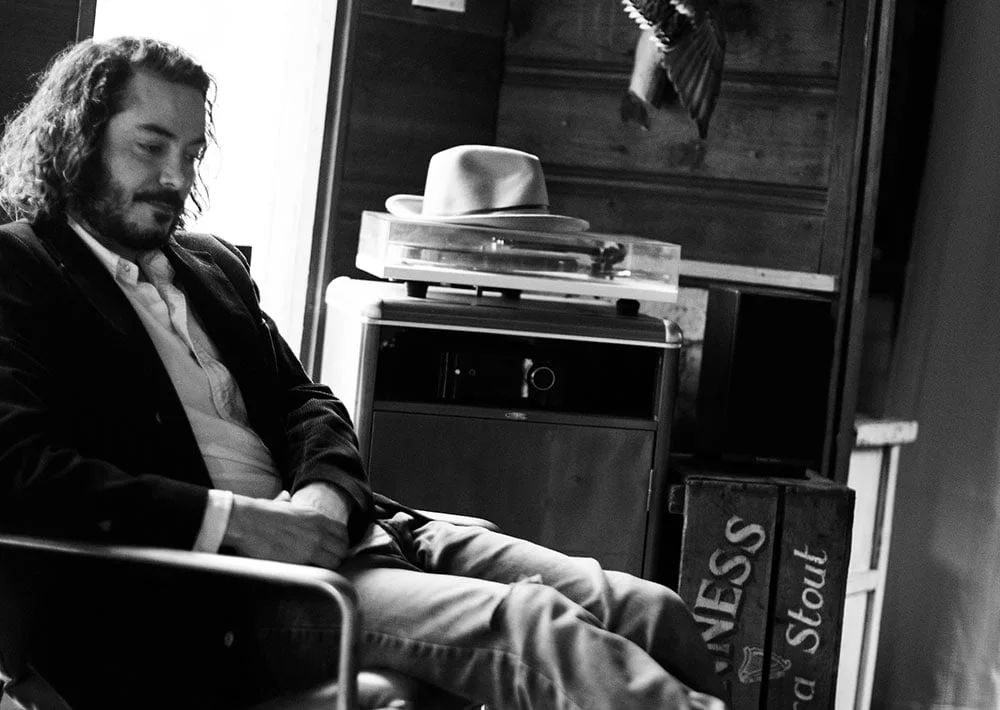
Max Gomez: “I try to keep in mind that there are no rules in songwriting.” Photo: Blue Gabor
At what point along your career path did you feel like you’d found your own unique voice as an artist?
“Well, when I really started, there was a period — I’m trying to remember when it was, but I think I was 23 or so maybe — and I started writing songs all the time. I had my own place that I was living, and I was making a living playing music. I felt like I was destined to make a real album and make it somewhere in a big city, not in my hometown here. I was writing songs a lot and sending them to whoever would listen to them that was in the record industry that I knew, which was a small list of people.
“I remember hearing songs on the Coffee House XM channel, and I would think to myself, ‘That might be pretty good, but I can do that,’ or, ‘I can do better than that.’ It gave me some confidence, and then I had the energy and the drive at the time to really put pen to paper about it.”
What happened next?
“I wrote a lot of songs then that were unique, and I felt like those were my own songs, my own voice. And as the time would unfold, I would go on to record those songs in New York City with some great record producers and back in Los Angeles and with great record producers. Lo and behold, one of the songs became a hit on the Coffee House channel, and they played it nonstop for a handful of years.
“I used to listen to the station, and I remember the DJ or a pre-recorded thing would come on. It would be a voice, and they’d start talking about me. They might not have even had their facts straight, and they would be saying things about me that I didn’t even know about myself. Then my song would come on, and I was like, ‘Wow, that’s really cool.’ I felt like I kind of did what I was supposed to, like I hit it out of the park.”
Prior to Jeff Beck’s saddening passing, you opened for shows of his and Johnny Depp’s tour in late 2022. How would you describe that experience, and how will you remember Jeff?
“I feel like I should tell you how that tour came about for me. I have this friend, Danny Zelisko, and he’s a big concert promoter. He called me very shortly before the Jeff and Johnny tour, and he invited me to play a show opening for George Thorogood. I went and did it, and I had this great reception. It was a really special show for me. Danny was almost like some sort of guardian angel to me in the music business. He decided that he wanted to help me get some more shows going and with my career.
“A couple days later, he had me booked on the tour to open for his friend Jeff Beck and his friend Johnny Depp. Next thing you know, I’m off to the races on this tour that’s probably the biggest tour I’ve ever been part of. We began traveling and celebrating, and I got to watch Jeff Beck every night and hang out with those guys. It was surreal. It was lovely. It was memorable and inspiring, and it was fun and funny times. Johnny Depp was humorous all the time and extremely complimentary of me and my music. Jeff was very shy, it seemed like.
“But I would go and talk with Jeff towards the end of the tour, and I was delighted and maybe even surprised at how kind he was and how gracious and complimentary he was. He was even thankful. He thanked me for being on the shows and opening the shows and doing such a nice job. So I will always remember it, needless to say, fondly with a warm heart.”
What does your approach to songwriting look like currently?
“To me, I feel like I write…maybe two types of songs. One type is where you study something that you want to write about, or you decide you’re going to write a song about something, and you set out to do it. Perhaps, what would be an example… I have this new song that I wrote with a friend called New Mexico, and we set out to write a song about New Mexico. It’s a very entertaining song, and it does really well at the shows.
“Another type of song that I tend to write a lot of is songs where I just sit down with a guitar and I start to play something and make something up out of how I’m feeling in that moment. I wind up riding this emotional train to wherever I am in the moment and in life. I write a love song or something like that, and I have no idea why or what it is exactly. It’s just like a passionate burst of music. They both can be great. They’re both very different, and of course, they can be mixed in to various degrees.
“But to me, that’s what it looks like. You either sit down with an idea and a title, and you can even put it on a chalkboard and dissect it and work on it and co-write it and all this stuff. Or maybe you just sit down and you come from the heart. Those are the two ways that I tend to go about it.”
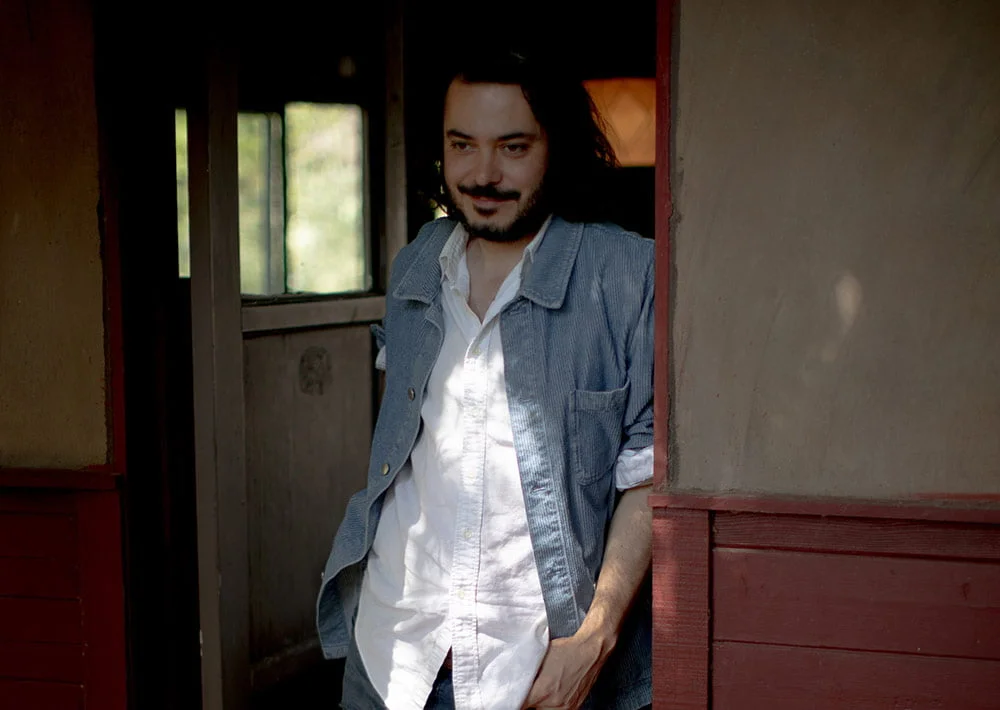
Max Gomez: “I would love to produce my own record someday.” Photo: Blue Gabor
I always find that so interesting with songwriters — how the writing can be very personal in some cases, and in others, it’s from that more intentional storytelling mode.
“Yeah. And I try to keep in mind that there are no rules in songwriting. Oftentimes in rock ‘n’ roll… I don’t always write any songs that are kind of rock ‘n’ roll, but in rock ‘n’ roll there’s an old rule that nonsense makes the most sense, and I feel like that’s a good songwriting rule. It doesn’t have to make perfect sense all the time. It just has to feel good.”
Can you tell us a bit about your new album you’ve made with Mark Howard producing and what that process was like?
“So I’ve always known of Mark Howard, mostly because some friends of mine worked with him on Lucinda Williams’ album [World Without Tears] that he produced and recorded. I was due for making a new album — maybe overdue — and I was trying to figure out who I was going to do it with. Some folks, some friends recommended I call Mark. So I started talking to Mark, and it seemed to be a natural fit. It seemed to be really easy to work together, so we set out to make an album.
“Working with Mark is really special in a lot of ways for a lot of reasons, but one of the reasons why is because he flies around the world and builds recording studios wherever he’s needed, and oftentimes, he builds them in beautiful houses. So, no exceptions here; we found this beautiful house on the beach in Los Angeles, built a recording studio in it, and recorded the album there over the course of a week or so. We worked on it a lot after that week was through, with little follow-up additions and fine-tuning things. But for the most part, it was just a capture of that one week where me and a cast of really talented studio musicians were hanging out at the beach house, and we wound up with a beautiful album which will be coming out soon.”
What do you hope listeners take away from the album?
“This album is a body of work that is very much an old-fashioned album, which is sort of the style that Mark tends to live within. He makes albums that set a mood, set a tone from A to Z, and this does that, I think, this project. The title of this album, I think, is going to be Memory Mountain, which is a song on the record that I wrote with Michael Martin Murphey, actually. I hope that when listeners have a chance to hear this record, they spend time with the entire record and not just with one or two or three songs, but rather the entire thing because that’s the way we recorded it and planned for it to be. That’s the way we intended for listeners to appreciate it.”
You’ve performed a song that’ll be on the album, Lost Train Of Thought, live on stage, and the audience loves to get involved and sing along. How did writing that one unfold?
“I’ve got a songwriting friend named Jed Zimmerman, and he calls me up often and has song ideas. It was his idea, actually, that song. He calls up with it, and it was during a more serious COVID time back a few years ago. We wound up writing the song over the phone, which was a really difficult thing to do. We had pages of lyrics and lines about this lost train of thought, and they were all lost, literally. We had to arrange it and whittle it down to this cool song that we wound up with, and that was a trick to do.
“What really happened with the audience participation thing is, I was playing that song a few years ago at some little show, and I had a band, and the bass player is this amazing bassist named Taras. And Taras started singing in the end of the song; when I [sang], ‘Come on and ride that train,’ Taras went, ‘Ride that train!’… [I’d sing] ‘Come on and ride that train,’ and he’d go, ‘Ride that train!’ He was getting the crowd to do all this stuff, and the crowd totally went for it. I really took note of what he’d done, and so we started using that. Even on the record — when you hear the record, there’s a little bit of that, and then when I play it live, I try to get the crowd to sing that part. That’s how that song came around.”
Moving forward, is there anything professionally you’d like to focus on or maybe attempt that you haven’t gotten around to yet?
“Definitely. I want to record more. I really love recording, and I’ve always worked with producers and budgets that have all been — at least in our minds at the time — they’ve all felt really restrictive, really tight. I would love to produce my own record someday. I’m thinking about it more and more these days. I’ve been touring lately, opening shows for Tommy James & the Shondells, and Tommy’s career is a really remarkable one that started in the early 60s, so a really different time to be in the music business. But his intentions when he was a young musician, I think, often revolved around having a radio single that could become a big hit.
“I’ve never really pursued that exactly, and I think I might take a stab at it one of these days. I think I’d like to do that, and I’d like to produce my own recording someday. Those are goals that I have, as well as write some good three-chord rock ‘n’ roll songs, which I’ve maybe done once or twice, but I’d like to do more of that.”

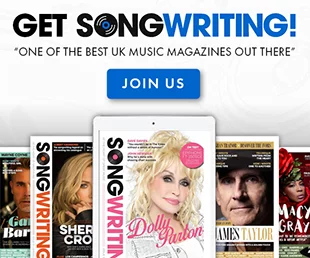
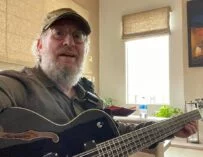


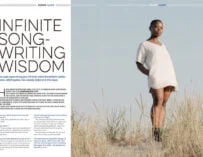



























Related Articles